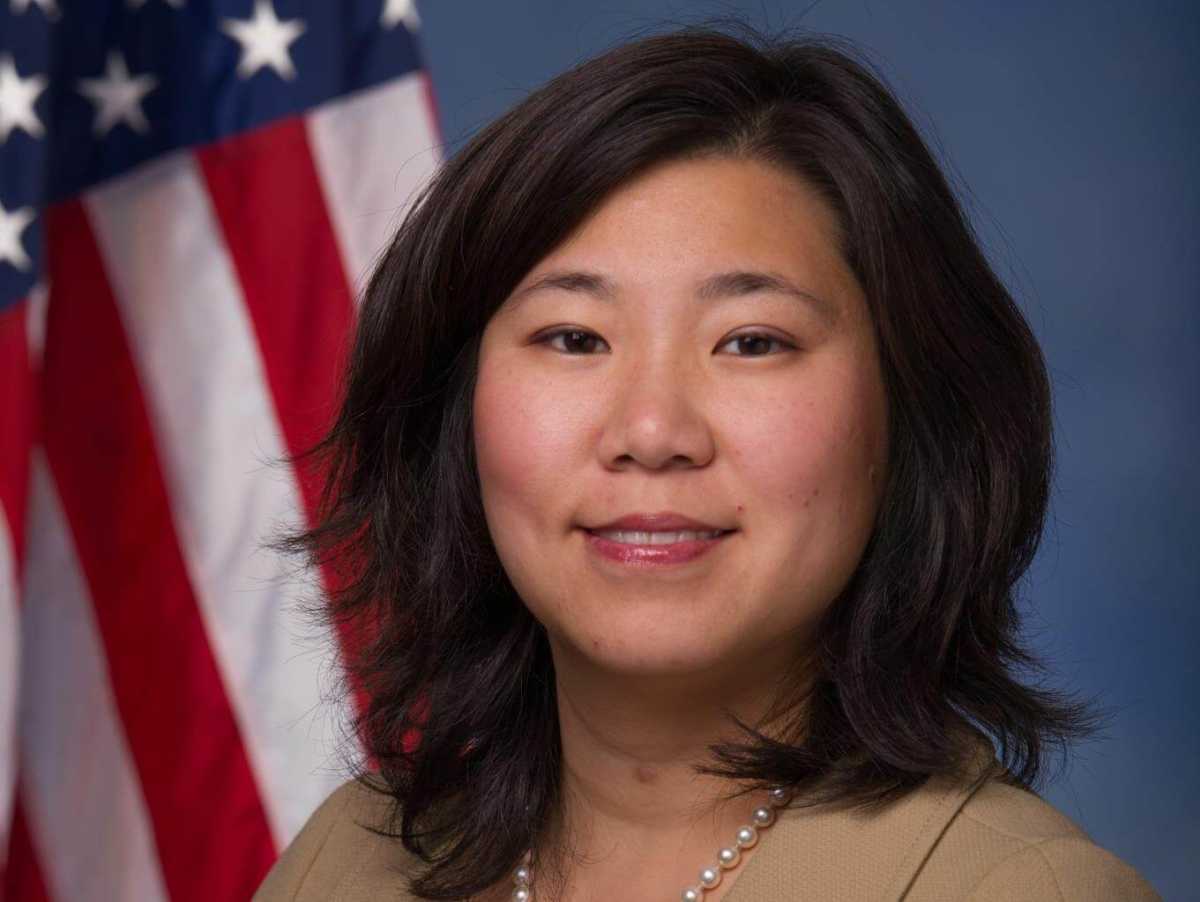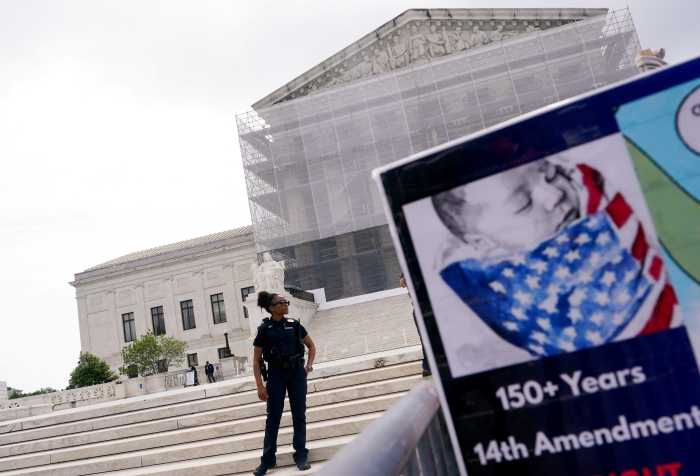Congresswoman Grace Meng on Tuesday introduced a new legislation to help migrant families and children at the U.S.-Mexico border.
Meng’s legislation, “Stop Cruelty to Migrant Children Act,” would ensure that migrant families and children who arrive at the border are provided with safe, sanitary, and humane services. The Congresswoman’s bill is the companion to the Senate bill led by Minority Leader Chuck Schumer and state Sen. Jeff Merkley to improve protection for migrant families at the border.
Meng, who traveled to the U.S.-Mexico border last year during the Trump administration’s family separation crisis, said the administration’s lack of empathy and compassion for migrant families and children at the border is heartbreaking and demands action by Congress.
“Those who come to our nation should be treated with dignity and respect and that is something the administration has failed to provide when treating migrant families,” Meng said. “We have a crisis at the southern border, and we need to ensure our officials have the resources they need while respecting the dignity of those in the U.S. government’s care. I’m pleased that so many of my colleagues have joined and I hope that my bill will receive consideration soon.”
The legislation seeks to provide guardrails and set minimum standards of treatment for children and families to ensure government funds are not used to traumatize or harm asylum seekers.
Specifically, Meng’s bill would end family separations except in situations where the child is a trafficking victim, not the child of the accompanying adult, or in danger of abuse and neglect.
There will also be minimum health and safety standards for children and families in border patrol stations; require access to toothbrushes, diapers, soap and showers and other hygiene products; regular nutritional meals; and ensure a prompt medical assessment by trained medical providers.
Other minimum standards of treatment include:
- End for-profit contractors from operating new Office of Refugee Resettlement (ORR) standard shelters or influx facilities. Such shelters or facilities must be state-licensed, meet Flores Settlement Agreement standards, and not used to house children indefinitely.
- Expand alternatives to detention and the successful Family Case Management Program (FCMP), which was a program that was designed to increase compliance with immigration obligations through a comprehensive case management strategy supported by community organizations.
- Remove roadblocks to placing unaccompanied children with sponsors by lowering the total number of cases a manager may take, mandating lower staffing ratios, and ending the information sharing agreement between ORR and Immigration and Customs Enforcement (ICE).
- Ensure unaccompanied children have access to legal counsel and continue to be placed in a safe setting for their initial asylum case review.
- Provide resources to non-profit centers that are helping provide humanitarian assistance.
- Permit Members of Congress, accompanying staff, and credentialed press (without cameras) to visit any facility with 24-hour notice.
Organizations in support of the bill are urging members of Congress to pass the bill and the Senate companion bill, immediately.
Isabel Sanchez, a national policy advocate at the Coalition for Humane Immigrant Rights (CHIRLA), commended Meng for her efforts to protect the health, safety and wellbeing of migrant children.
“It is of extreme importance that we, a nation of immigrants, take care of our most vulnerable at our borders and within our borders. For starters, under no circumstances should families ever be separated; any shelter that houses migrant children must abide by the highest health and safety standards to ensure that children receive the necessary medical attention they need,” Sanchez said. “Children are literally dying at our borders because of the ongoing neglect provided by untrained officers that are ill equipped to care for minors. Families have endured enough pain, and the least we can do is treat them as humanely as possible.”
Sanchez added, “Our government must work towards the expansion of alternatives to detention programs, move away from criminalizing all immigrants, and divest from pro-profit contracts that only exploit our immigrant communities and asylum seekers.”
Lakshmi Sridaran, interim co-executive director of South Asian Americans Leading Together (SAALT), called the treatment of migrant children and families “reprehensible.”
“Congress must act swiftly to pass the Stop Cruelty to Migrant Children Act, which would end the horrific policies leading to family separation and put in place a system of accountability and a set of standards to ensure this treatment ends right now and is never repeated,” Sridaran said.
The legislation is endorsed by organizations such as CHIRLA; SAALT; Church World Service (CWS); National Partnership for New Americans (NPNA); National Korean American Service and Education Consortium (NAKASEC); Greater Portland Immigrant Welcome Center; CASA; One America; Hispanic Federation; and the First Focus Campaign for Children.




































